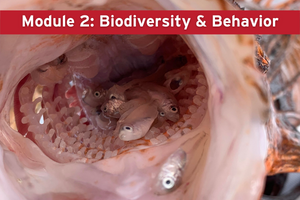Protecting our Oceans from Invasive Species
About PageImplementation Guide & FAQsStart your Ocean Explorers Case Study!
Known for their show-stopping appearance, venomous spines, and damage to coral reef biodiversity, invasive lionfish pose a significant threat to marine ecosystems due to the widespread predation of native species, prolific reproduction, lack of control, and many other adaptations. As the first non-native marine fish to become established in the Atlantic, there have been a lot of complications in dealing with this invasive species, ranging from researching behavior to developing effective methods of control.
Through REEF’s Invasive Lionfish Case Study: Lionfish Investigation and Engineering Challenge, students will work to research lionfish distribution and adaptations, identify their impacts, and engineer their own mechanism of control.
Educators may choose to participate in one, two, or all three of the learning modules for the Invasive Lionfish Case Study.

Invasive Lionfish Case Study Module 1: Distribution & Adaptations
Identify adaptations that make lionfish the perfect invader. After receiving a set of habitats with varying physical characteristics, explore current scientific research to determine what types of habitats lionfish tend to thrive in, as well as what adaptations allow them to do so.
Photo by: Rich Carey

Invasive Lionfish Case Study Module 2: Biodiversity & Behavior
Discover what prey fish have been found in lionfish stomachs. Work together to identify the recreational, commercial, or ecological importance of the prey species, and draw conclusions on what the consumption of these species can tell us about lionfish behavior.

Invasive Lionfish Case Study Module 3: Engineering Challenge
Utilize research on lionfish adaptations and behavior to design a mechanism of control or removal. Use a quickfacts sheet and research proposal worksheet to assist with developing a unique solution. This engineering challenge can be targeted towards specific biological or behavioral traits, a trap design, genetic modification, or anything in between.

